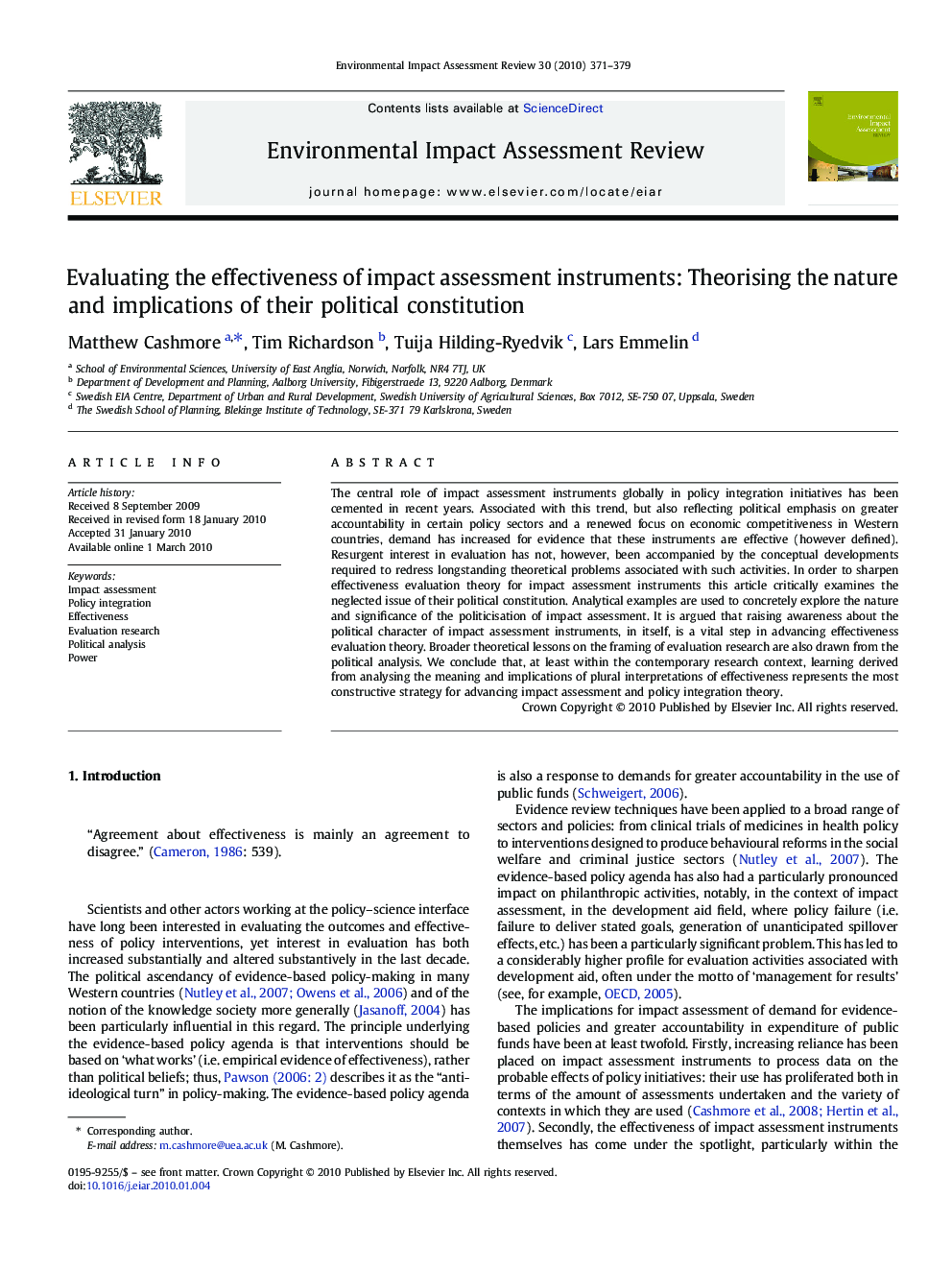| کد مقاله | کد نشریه | سال انتشار | مقاله انگلیسی | نسخه تمام متن |
|---|---|---|---|---|
| 1053055 | 1485012 | 2010 | 9 صفحه PDF | دانلود رایگان |

The central role of impact assessment instruments globally in policy integration initiatives has been cemented in recent years. Associated with this trend, but also reflecting political emphasis on greater accountability in certain policy sectors and a renewed focus on economic competitiveness in Western countries, demand has increased for evidence that these instruments are effective (however defined). Resurgent interest in evaluation has not, however, been accompanied by the conceptual developments required to redress longstanding theoretical problems associated with such activities. In order to sharpen effectiveness evaluation theory for impact assessment instruments this article critically examines the neglected issue of their political constitution. Analytical examples are used to concretely explore the nature and significance of the politicisation of impact assessment. It is argued that raising awareness about the political character of impact assessment instruments, in itself, is a vital step in advancing effectiveness evaluation theory. Broader theoretical lessons on the framing of evaluation research are also drawn from the political analysis. We conclude that, at least within the contemporary research context, learning derived from analysing the meaning and implications of plural interpretations of effectiveness represents the most constructive strategy for advancing impact assessment and policy integration theory.
Journal: Environmental Impact Assessment Review - Volume 30, Issue 6, November 2010, Pages 371–379